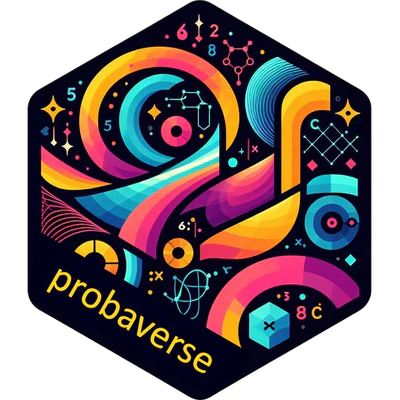distionary
The foundation of the probaverse, `distionary` makes probability distributions tangible with a flexible, generic framework. It offers a simple interface for evaluating …

A cohesive set of open-source tools for working with probability distributions, uncertainty, and reproducible statistical workflows.
Install with R by running
install.packages("probaverse")
The foundation of the probaverse, `distionary` makes probability distributions tangible with a flexible, generic framework. It offers a simple interface for evaluating …